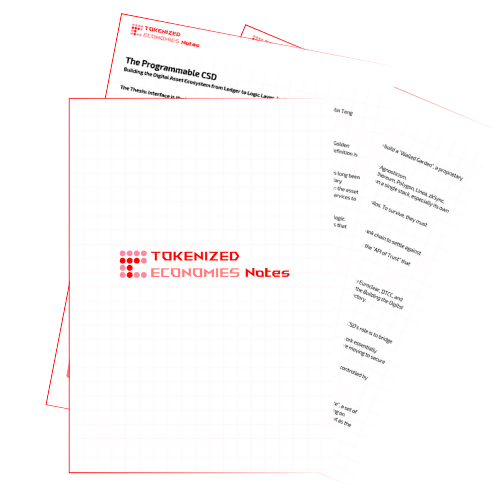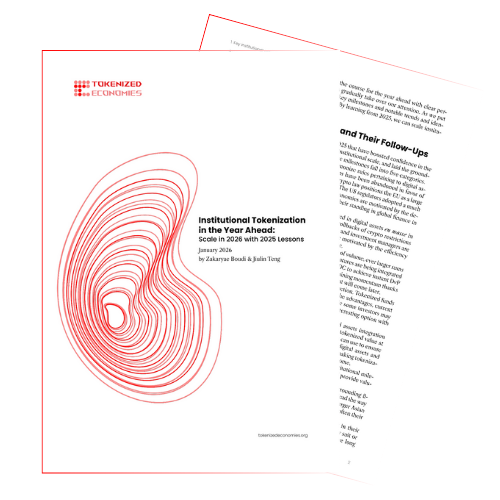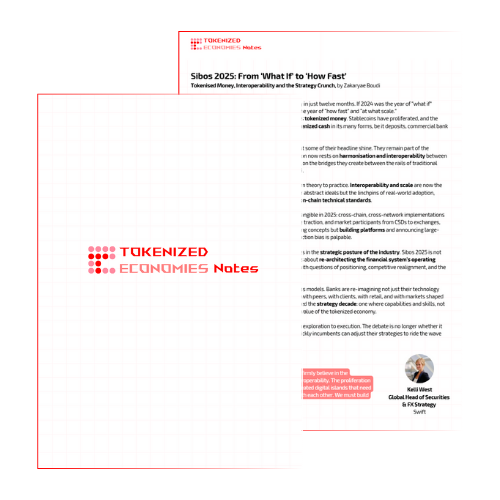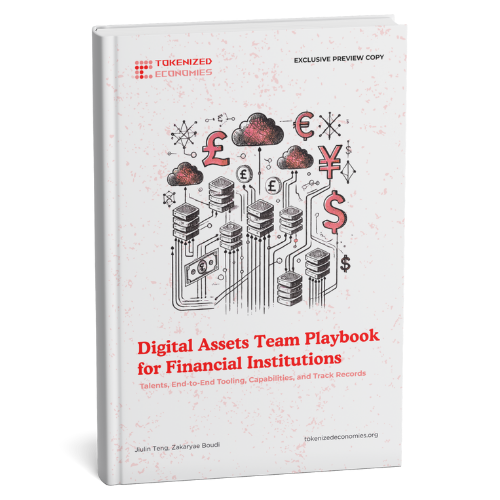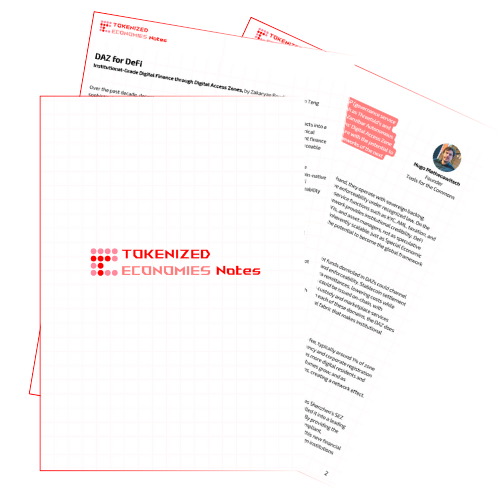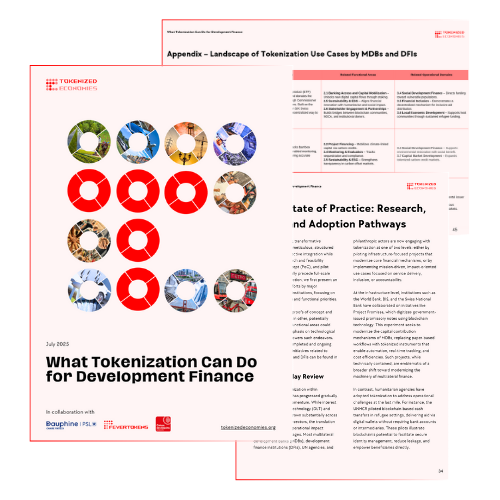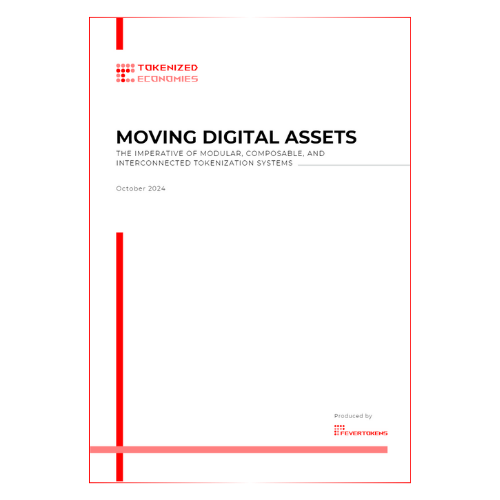The Tokenized Economies Institute (TEI) is a research and collaboration platform to advance tokenization through public-private dialogue. By bringing together finance institutions, regulators, researchers, technologists, and civil society, we aim to produce research that is not only thoughtful but useful, grounded in real-world constraints, mindful of risks, and oriented toward practical implementations.
TEI Memberships
Stay ahead. Build with confidence.
Join TEI today.
Join the Tokenized Economies Institute as a member and gain insider access to the forefront of financial innovation.
- Office Hours, on your agenda: Bring your challenges, roadmaps, or thorny questions, and meet 1:1 with TEI experts for concrete, implementation-ready guidance.
- First look at the Playbook: Practical guides on team design, capability methodology, and evidence-driven scaling, and apply them directly to your program.
- Join the builders’ circle: Bring your perspective and plug into a live network of regulators, institutions, researchers, and technologists moving tokenization forward.
Whether you are building a digital assets team, testing new pilots, or scaling real-world applications, TEI membership is your gateway to practical insights and institutional-grade collaboration.
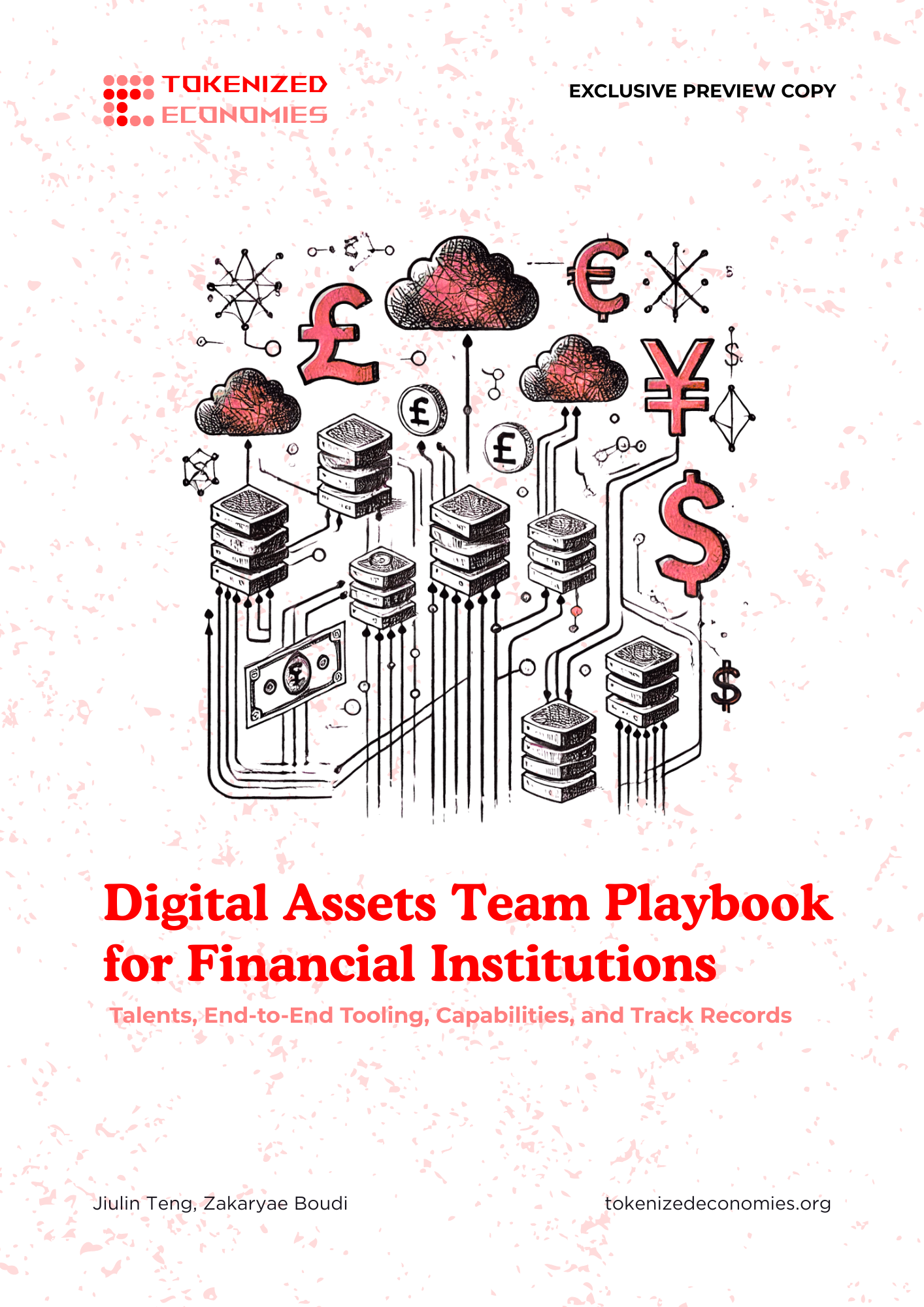
Latest Publications

TEI x EPBS Research Program
Tokenization for Sustainable Finance
TEI and École des Ponts Business School invite key partners in finance and blockchain to join a one-year research program focused on tokenization for sustainable finance.
LEARN MORE


